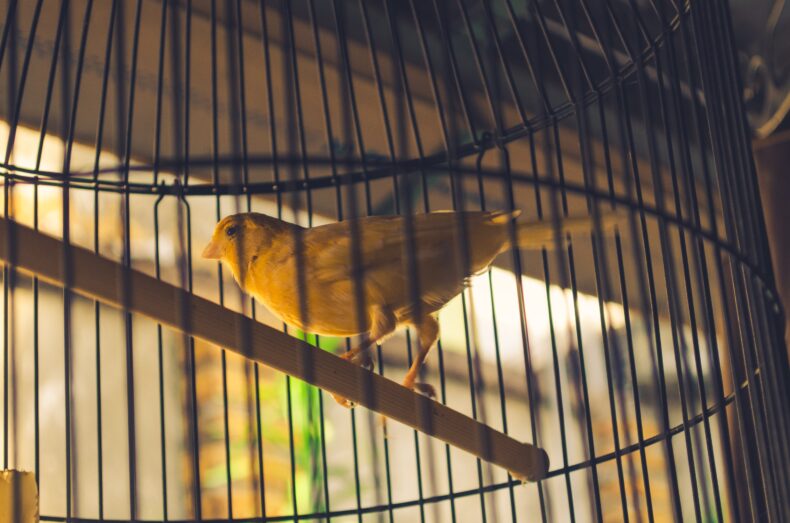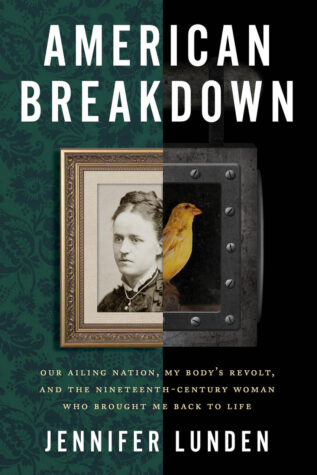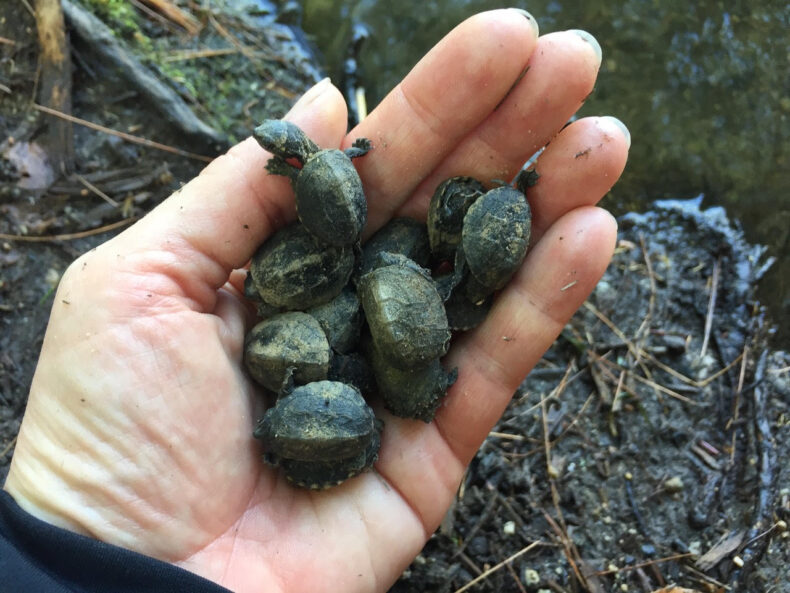
This is Part 2 of my interview with Jennifer Lunden, author of American Breakdown: Our Ailing Nation, My Body’s Revolt, and the Nineteenth-Century Woman Who Brought Me Back to Life. You can read Part 1 here.
Kate: The main thing I took away from your early advice to me about book writing was “buy yourself as much time as you possibly can, because you’re going to need it.” You recommended that sick and disabled writers look for agents who already represent sick and disabled authors, because you need somebody who understands that this process will take a long time.
L: Definitely. I know one writer with a chronic illness who was able to get a clause in her contract that if she wasn’t able to deliver the book on time, they’d give her more time without dropping the book. I would recommend that any writer try to negotiate that clause into the contract. Not only because you might need it, but also because it can reduce the stress…which can prevent you from needing it.
K: These have been pretty rocky times for the book industry in general, and especially for the Big Five publishing houses. What’s it been like releasing a book amid this upheaval?

L: I’ve been really fortunate; Harper Wave has been absolutely amazing. Harper Collins had a strike that lasted about three months—a long time. I wrote about unions in my book, about how important they are to the economic structure of this country and to our economic wellbeing. When union workers are fighting for themselves, they’re actually fighting for all of us.
L: The striking workers at Harper Collins were more entry-level and assistant-level employees. They were fighting for higher entry wages—basically, livable wages for New York City. Publishers have historically had unpaid interns, which is how people would get in the door. Well, who are those unpaid interns? How are they surviving? Their parents are helping them. And who can afford to do that? Only a certain economic class of people, who are usually White.
L: And so we’ve had a very limited perspective on literature. We haven’t had the breadth of literature we could have had because we don’t have equal access in the publishing world. And so they were fighting for that, too. They were willing to stop working until they got their demands met. And, as things usually go, they didn’t get all their demands met, but they did get a wage increase. Interestingly, while they were striking, two of the other Big Five publishers did increase base salary. That’s how it works.
L: So here I am, a writer who values unions, who’s written about unions, and now people working for my very own publisher are on strike. I wanted to support the strikers, but also I wanted my book to be published and to do well. I sent them some money, and a lot of us writers signed petitions and wrote letters to the CEO. I’m really fortunate that my book came out after the strike ended. Other writers were more deeply affected than I was. And I’m so glad that it’s over. I’m grateful to those workers for doing what they did, and for it making an impact. I see other union building happening more around the country. And it makes me hopeful.
K: There’s something especially meaningful about that labor organizing happening as your book about labor is being born.
K: One of my favorite parts of American Breakdown was where you talked about cultural expectations that illness narratives will be linear. That at the beginning there will be an obstacle—the mysterious symptoms—and at the end there will be an answer and a cure. But real life and real illness are so much more complicated than that. How do we as individuals let go of this expectation? And how do we cope with a culture and a publishing industry that demands linear stories?
L: When I started writing my book, I was still very sick and I didn’t know if I was going to have a happy ending. I didn’t really expect it, but I was fighting for it. For 20 years. And in some ways, I think, “How could that be wrong, to want to recover fully?” I once talked to a woman with ME/CFS who had let go of trying to recover. At the time, I couldn’t even contemplate that. It felt like a failure… but also, like a release. I did still feel like I needed to try to get better. And some of the things I tried did help, in small ways. But I also came to see her point: that it really is okay to let go. In some ways, letting go of trying to get better can reduce the pressure of trying to get better, and can therefore reduce the stress on your body and maybe even increase the possibility that you’ll recover, depending on what you’re dealing with.

L: Toward the end of writing my book, I did fully recover. I expected that I had recovered forever, and I was like, “Awesome, I’m gonna have one of those books that has a fully recovered story at the end. People like those books.” And then I relapsed, partly because of the pressure of trying to get my book done under a deadline. I lost seven months. I was completely bedridden. It was catastrophic and devastating. So then I had to write an epilogue.
L: My book is told in interwoven segments because life isn’t linear and illness stories aren’t linear and trauma stories aren’t linear. The world isn’t linear. Everything is in a complex network of interaction.
K: I really appreciated the nuance that this aspect of your story brought in. You’re not just conquering the beast and calling it a day. It’s about living in the messiness and the reality of it. The interconnectedness of it.
L: My editor understood. She’s had a life-changing illness. When we met to discuss the book after the deal went through, I said, “Can I send you the rest of what I’ve got so you can give me some guidance?” And she was, like, “No, I don’t want your pages. I trust your judgment. Just do it.” I think when you’ve been through the medical system yourself, you have a different appreciation of the complexity than other people might have.
K: I’m not demanding a happy ending, here, but let’s close on a joyful note. What’s something wonderful you saw recently?
L: It’s only recent in the big picture, but: I swim in the Presumpscot River here in Maine three months of the year, three days a week. It makes me feel so happy and connected to my body, connected to nature. One day I went there and someone passing by pointed out a hole, and the hole was full of little turtle hatchlings. Their mother had laid the eggs in this hole between the roots of the tree, but the hole was steep, and they couldn’t get out. There was a family there with children, taking the turtles out of the hole, and finally they left and I could have the turtles to myself. They were just the size of a nickel. I’d walk a few steps to the river with a handful of turtles and hold them at the surface of the water and let them decide when they were going to swim. One of them left my fingers and then swam back. It was all of my dreams from childhood.

L: So that’s what my next book is going to be about—swimming in the Presumpscot River. It’s sort of a book to help me heal from the hard work of writing the book I just finished. I’m hoping it will help others heal, too. This is a hard time we’re living in. It’s good to connect to nature, and to each other.
*
Image credits: Unsplash (canary), Harper Wave (book cover), Melanie Lunden (author photo), Jennifer Lunden (tiny turtle magic).
What a wonderful read!
Thanks so much for reading!